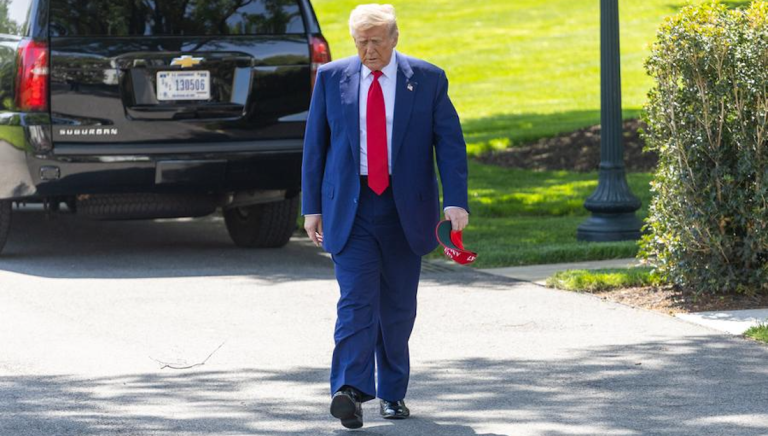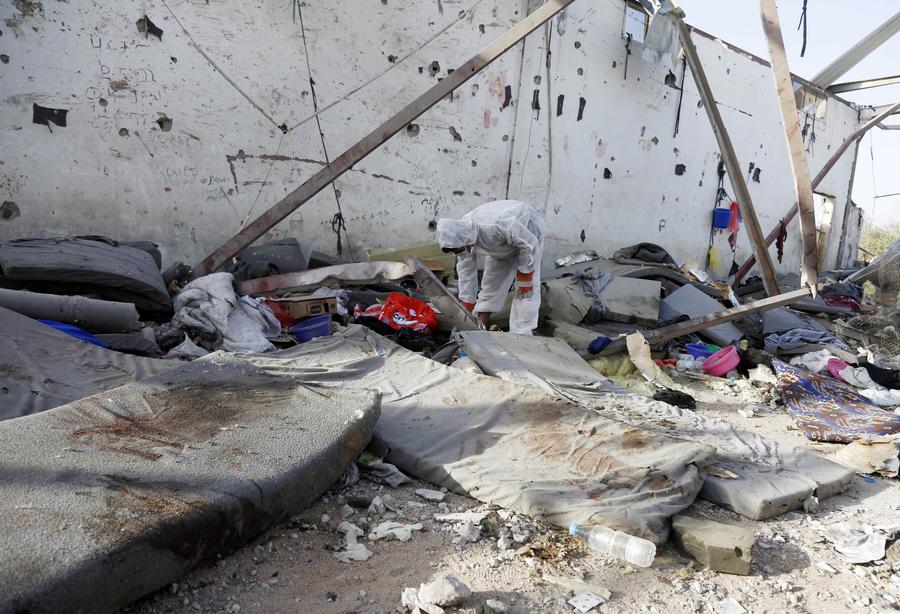
Xinhua reports: Regional analysts said that the U.S. government’s disregard for sovereignty and human rights in the Middle East has not only jeopardized local lives but also undermined international norms, becoming “part of the problem, not part of the solution.”
Cairo — The Chinese news agency Xinhua reports today on ‘How Middle Easterners see Trump’s Mideast Policies.’ There story is as follows:
“Since U.S. President Donald Trump took office in January, the Middle East has seen conflicts intensifying and civilian suffering mounting under U.S. involvement.
Regional analysts said that the U.S. government’s disregard for sovereignty and human rights in the Middle East has not only jeopardized local lives but also undermined international norms, becoming “part of the problem, not part of the solution.”
“LOST ALL CREDIBILITY”
The Palestinian question has always been at the heart of the Middle East issue. After assuming office, Trump floated the idea of clearing out Gaza’s civilian population and taking control of the territory.
“Trump’s statements are completely wrong as we do not want to relocate from our houses and our land,” said Amna Anan, a young Palestinian woman from Gaza City.
“We are against such a policy. The only thing that we need is to live on our land in stability and get our own rights as well as all the people around the world,” Anan told Xinhua.
Trump’s statements on Gaza reflect “a colonial mentality,” said Ismat Mansour, a political analyst based in the West Bank city of Ramallah.
“President Trump does not view Gaza as a land inhabited by people with legitimate rights,” he said. “Rather, he approaches it with the logic of a contractor who sees only land, businesses, projects and investments, ignoring the presence of more than 2 million people suffering from the scourge of the blockade and ongoing war.”
After the Israeli military resumed bombardment in Gaza on March 18, Trump expressed support for the resumption of the killings.

U.S. Middle East policies demonstrate a lack of commitment to ending the war or advancing the two-state solution, said Nimrod Goren, president of the Israeli Institute for Regional Foreign Policies.
Ezzat Saad, director of the Egyptian Council for Foreign Affairs, said, “Trump fails to respect the fact that he leads a major country, a permanent member of the UN Security Council, which is supposed to uphold international peace and security.”
Trump’s irresponsible statements on the Palestinian question have led to a significant deterioration in regional stability, Saad said, noting that the United States has become part of the problem, not part of the solution.
Under the Trump administration, the United States has lost all credibility, he added.
“BULLYING AND BLACKMAIL”
Since taking office for a second term, Trump has applied “maximum pressure” on Iran by intensifying economic sanctions and threatening military attack to force Iran to accept a nuclear deal with the United States.
In Yemen, the United States launched large-scale airstrikes against the Houthis. To date, the United States has not achieved its goal of restoring “freedom of navigation through the Red Sea” and has instead caused a new round of severe suffering for the Yemeni people.
“We comfort ourselves by thinking ‘It is not as bad as Gaza,'” said Manal Qaed Alwesabi, a Yemeni journalist based in the port city of Hodeidah, which has experienced frequent U.S. airstrikes.
Steven Wright, an associate professor of international relations at Qatar’s Hamad Bin Khalifa University, said that the Trump administration’s policies on Iran, Yemen and Gaza all raise concerns for the Gulf states.

Recently, the U.S. president demanded U.S. military and commercial vessels pass the Suez Canal “free of charge.”
Trump framed the proposal as Egypt’s “contribution” to U.S. efforts to combat Houthi attacks on Red Sea shipping, which have severely impacted Suez Canal revenues.
“I do not know on what basis President Trump is demanding that American ships … be allowed to pass freely through the Suez Canal,” Mostafa Bakry, a member of parliament in Egypt, told Al-Araby Al-Jadeed TV.
“In my view, there is only one reason — the policy of American bullying and attempts to blackmail sovereign nations. It is an open act of theft and an imposition of tribute on an independent country, a member of the United Nations,” he added.
Analysts also criticized the Trump administration’s recent threats to annex territories belonging to other states and the imposition of comprehensive tariffs on trading partners.
Trump’s first 100 days in the White House have revealed his intention to upend the international order and his attempts to impose his own policies based on political and economic blackmail on all countries, said Kheir Diabat, a professor at the International Affairs Department at Qatar University.
Echoing Diabat, Tunc Akkoc, editor-in-chief of the Turkish media platform Harici, said Trump has effectively declared “an all-out assault” on the international order.
“Throughout his tenure, Trump has shown a clear willingness to ignore the rights of other sovereign countries and international institutions, prioritizing only the interests and gains of the United States,” he said.
Above: The Chinese news agency Xinhua reports today on ‘How Middle Easterners see Trump’s Mideast Policies.’
Worldview: How Middle Easterners see Trump’s Mideast Policies (May 4, 2025)